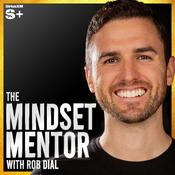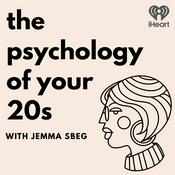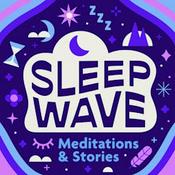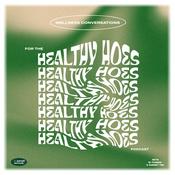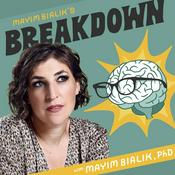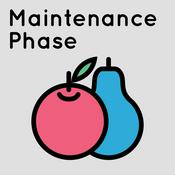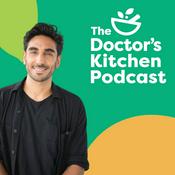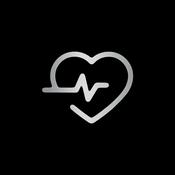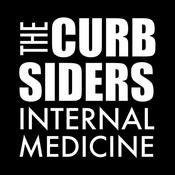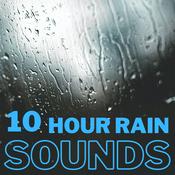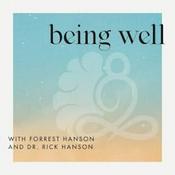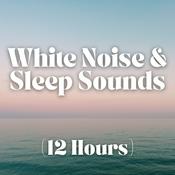17 episodes
- Cellulite. Almost every woman has it, a few men do too — and yet it’s been sold to us as this giant flaw we must fix. Billions are spent every year on creams, teas, wraps, and treatments that promise a “cure”… but do they actually work?
In this episode, I’m breaking down the truth about cellulite:
Where it came from and why it only became a “problem” in the 1960s
The science of what cellulite actually is (spoiler: it’s not “toxins”)
Myths and marketing tricks — from miracle creams to dry brushing and cold plunges
What does make a difference (hint: it’s free and way less glamorous)
Why cellulite doesn’t define you — and how to embrace body confidence without sacrificing your health
I’ll also share some personal stories (like my London cream obsession that wasn’t actually the cream at all!) and the empowering reminder that cellulite is normal. Your worth has nothing to do with the texture of your thighs.
And if you want a little inspiration on normalizing dimples, stretch marks, and real skin, go follow Sarah Landry a.k.a. The Birds Papaya — she’s changing the game for women everywhere.
So if you’re tired of wasting money on miracle potions, or just want to feel a little less alone in your dimples — this one’s for you. - In Part 2 of the Hormone Episode, we’re diving into the real talk on what happens when hormones start running the show — or, in some cases, stop showing up to work altogether.
This one has taken a while to publish as it is an extremely complex topic. I hope this helps shed some light on the topic.
We’ll cover:
Perimenopause & Menopause: the hot flashes, sleep struggles, body composition shifts, and what’s really happening when estrogen and progesterone start to decline.
PCOS: what’s actually happening with insulin resistance, irregular cycles, and why symptoms often show up long before 35.
Endometriosis: why it’s not “just bad cramps,” how it impacts daily life and fertility, and why diagnosis still takes far too long.
This isn’t a doom-and-gloom episode. It’s about helping you understand what’s going on inside your body so you can stop blaming yourself, start supporting your hormones, and feel strong in the decades ahead.
What We Talk About in This Episode
What is actually happening to your body in Perimenopause and Menopause
Why PCOS is as much about insulin resistance as it is about missed periods.
How endometriosis tissue behaves like the uterine lining — but in all the wrong places.
Practical ways to eat for hormone health: fiber, protein, colorful vegetables, and whole foods.
The training approach that supports your metabolism and muscles through every stage.
Recommended Strength Training for Hormone Health
Strength training isn’t just about aesthetics — it’s your best tool to preserve muscle, protect bones, and keep metabolism humming as hormones shift.
Here’s a framework you can start with:
Frequency: 2–4 sessions per week.
Focus: Compound lifts that train multiple muscles at once.
Examples:Squats or goblet squats
Deadlifts or Romanian deadlifts
Push movements (push-ups, chest press)
Pull movements (rows, lat pulldown)
Overhead press (shoulders)
Core stability (planks, Pallof presses, farmer carries)
If unsure of these exercises email me and ill send a demo: [email protected]
Progression: Increase weights gradually. You want to feel challenged in the 8–12 rep range.
And yes — lifting heavy is safe (and necessary!) for women.
Related Episodes You’ll Love
🎧 The Belly Fat Episode — why belly fat is so stubborn after 35 and what actually works. Or on Spotify:
🎧 The Sleep Episode — how poor sleep messes with hunger, cravings, and hormones. Or on spotify:
Expert References from This Episode
Dr. Louise Newson – Menopause specialist and author of The Definitive Guide to the Perimenopause and Menopause.
Explore Dr. Newson’s work
Dr. Mary Claire Haver – Creator of The Galveston Diet and leading voice in women’s midlife health.
Visit Dr. Haver’s site
Dr. Stacy Sims – Exercise physiologist, nutrition scientist, and author of Roar and Next Level.
Learn more from Dr. Sims
Want Personalised Help?
This stuff is complicated. And the truth is, Google can only get you so far.
If you want support that’s built around your hormones, your lifestyle, and your goals, that’s exactly what I do in 1:1 Coaching. We’ll create a personalised nutrition and training plan that actually works with your body — no fads, no fluff.
Find out more about coaching or book a clarity call here - In this episode, we’re diving deep into the menstrual cycle—the four phases you move through each month, what’s happening under the hood, and how that impacts your mood, energy, cravings, workouts, and more.
👉 And if you’re a man listening in—thank you for being here. Whether you’re a coach, a partner, a dad, or you just want to understand the women in your life better—this will give you real insight into what many of us are navigating week to week.
This is part 1 of a 2-part series on hormone health. In this one, we’re talking all about your monthly cycle. In part 2 (coming soon), I’ll be covering perimenopause, menopause, PCOS, and some of the common hormone-related conditions many women deal with.
Whether you're brand new to cycle syncing or just want to understand your body better—this one's for you.
We chat about:
The four phases of your menstrual cycle (and why they matter more than you think)
Why you’re not “lazy” for needing more rest some weeks
When to push harder in the gym—and when to dial it back
What’s really behind the PMS snack attacks (hello, 100–300 extra calories burned in the luteal phase 👀)
How to adjust your training, food, and expectations to work with your body
There’s science, there’s storytelling, and a whole lot of real talk.
By the end of this episode, you’ll feel more in tune with your body—and hopefully, a little more compassionate towards it too.
🔗 MENTIONED IN THIS EPISODE:
The James Smith podcast – Fat Loss for females
Precision Nutrition – Cycle-based coaching methods
Journal of Clinical Endocrinology & Metabolism, 2006 – Energy expenditure during the luteal phase
Dr. Jen Gunter – The Vagina Bible
National Institute of Mental Health – PMDD info
🎧 LISTEN IF:
You’ve ever cried over an insurance advert
You feel like your motivation ghosts you once a month
You want practical ways to sync your workouts and nutrition with your cycle
You’re ready to stop fighting your body and start working with it
💥 If this helped you feel more seen, please share it with a friend, drop me a DM, or leave a review.
Because more women deserve this info—without shame, without confusion, and without having to Google symptoms at 2am. - In this episode, we’re talking about one of the most overlooked tools in your fat-loss journey: sleep.
Yes, that thing we all know we need more of but somehow keep sacrificing for one more scroll, one more email, one more episode.
If you’ve been doing “all the right things” with food and movement but your results have stalled—or if you’re waking up exhausted, craving sugar, and snapping at everyone around you—this episode is for you.
What We Cover:
Why poor sleep makes fat loss feel harder than it needs to be
How sleep deprivation hijacks your brain and hormones
Ghrelin and leptin—your hunger hormones on a wild ride
Why sleep is especially important in perimenopause and menopause
The link between tired days, low movement, and fat storage
Natural sleep aids that actually help
Realistic strategies to improve sleep quality, even with kids and chaos
Expert Insights & References
Precision Nutrition – Sleep, Stress & Recovery course https://www.precisionnutrition.com/ssr
Huberman Lab – How to Improve Your Sleep
Circadian rhythm and NSDR tools
https://www.youtube.com/watch?v=nm1TxQj9IsQ
Dr. Stacey Sims – Women Are Not Small Men
Sleep, cortisol, and menopause
https://www.drstacysims.com/
NSDR (Non-Sleep Deep Rest) Resources
Great if you can’t nap but need recovery:10-minute NSDR by Madefor
20-minute Yoga Nidra by Ally Boothroyd
Huberman NSDR Protocol Guide
Dr. Kimberly Truong, MD, MPH – Sleep & Body Composition
Hormonal and metabolic consequences of poor sleep
https://www.forhers.com/blog/sleep-and-weight-gain
James Smith Podcast – Sleep, Sex & Rest
https://jamessmith.podbean.com/
Supplements Mentioned:
Passionflower
Ashwagandha
L-theanine + GABA
Magnesium glycinate
Chamomile
A note on melatonin: may be useful short-term, but speak to your doctor before using regularly.
These supplements are supportive tools—not a replacement for solid habits like consistent bedtimes, less screen time, and a calming wind-down routine.
If this episode helped you make sense of your own sleep struggles, please share it with a friend or tag me on Instagram. Let’s normalize the reality that fat loss over 35 requires more than just “eat less, move more”—it requires rest, recovery, and consistency too.
REFERENCED PODCAST EPISODE: BEATING BELLY FAT AFTER 35: https://podcasts.apple.com/za/podcast/she-aint-heavy-podcast/id1803079814?i=1000703025693
OR
https://open.spotify.com/episode/5gCQOl5Stvy2W8aqYhwrS3?si=rKYGVyyGRmqBC5ptaWxOOw - If you’ve ever found yourself knee-deep in a packet of biscuits after a stressful day, wondering why you’re eating when you’re not even hungry—this episode is for you.
In today’s chat, we’re breaking down emotional eating—what it really is, why it has nothing to do with willpower, and what you can do to start shifting out of it. We’re talking nervous system hijacks, shame spirals, cultural conditioning, and how to reclaim your power with a few simple but powerful tools.
This one is part real talk, part mini masterclass—and it’s going to help you feel seen, understood, and ready to take back control.
What You’ll Learn:
The difference between physical hunger and emotional hunger
Why you crave high-sugar, high-fat foods when you’re stressed
What “trigger foods” are and how to manage them without restriction
The role of your nervous system and the “amygdala hijack” in reactive eating
Practical tools you can use right now to interrupt emotional eating patterns
How cultural messages and childhood experiences shape your comfort-with-food loop
The one mindset shift that makes all the difference
Resources + Masterclass Mentioned:
The Emotional Eating Fix
Join my 1-hour masterclass where we go deeper into the emotional eating cycle and teach practical strategies to shift your patterns for good.
🗓️ Live on 10 July 2025
🎥 Replay may be available if you're listening after that date
🔗 Emotional Eating fix
Expert Concepts Referenced:
Daniel Goleman’s “Amygdala Hijack” – how your emotional brain overrides logic in moments of stress
Dopamine and food reward pathways – why high-fat, high-sugar foods feel so irresistible
Self-sabotage patterns and shadow work – the deeper layers behind why we reach for food when we’re overwhelmed
Let’s Stay Connected:
If this episode hit home, share it with a friend who needs to hear it too. And if you're ready to go deeper, the Emotional Eating Fix is waiting for you.
✨ You’re not broken. You’re just human. And you’re doing better than you think.
More Health & Wellness podcasts
Trending Health & Wellness podcasts
About She Aint Heavy Podcast
She Ain’t Heavy is your go-to podcast for no-BS fat-loss and fitness advice that actually makes sense. Your host, Tracey Erasmus shares real talk, real strategies, and a little humour to help you get stronger, feeling better, and finally see results that last.
Whether you’re over 35, fed up with diet culture, or just want someone to cut through the noise, you’re in the right place.
Get your free fat-loss guide here: https://traceyerasmusfitness.com/opt-in-ultimate-fat-loss-guide
Let’s do this!
Listen to She Aint Heavy Podcast, ZOE Science & Nutrition and many other podcasts from around the world with the radio.net app
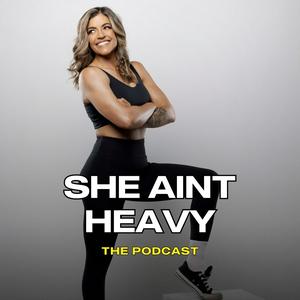
Get the free radio.net app
- Stations and podcasts to bookmark
- Stream via Wi-Fi or Bluetooth
- Supports Carplay & Android Auto
- Many other app features
Get the free radio.net app
- Stations and podcasts to bookmark
- Stream via Wi-Fi or Bluetooth
- Supports Carplay & Android Auto
- Many other app features


She Aint Heavy Podcast
Scan code,
download the app,
start listening.
download the app,
start listening.




